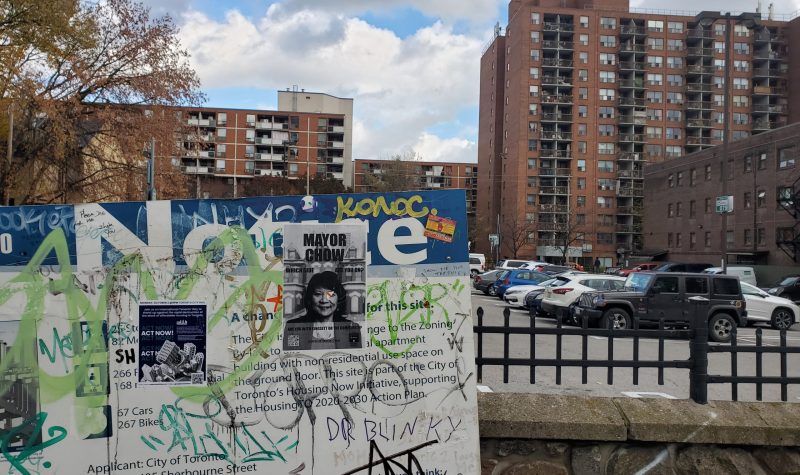A roadmap for building more affordable housing has been adopted at city council, with a new target for affordable housing.
The Generational Transformation of Toronto’s Housing System to Urgently Build More Affordable Homes staff report was adopted on Nov. 8 the first day of November's city council. The report aims to “strengthen Toronto’s housing system.”
City council amended the HousingTO 2020-2030 Plan and Housing 2022-2026 Action Plan’s original target goal of affordable housing. The original goal was 40,000 and was increased to 65,000 rent controlled homes. The breakdown of the new target is “6,500 rent-geared-to income, 41,000 affordable rental and 17,500 rent-controlled market homes.”
“We have now over 10,000 people who are experiencing homelessness each night. And around 48 per cent of households are renters. 40 per cent of them are living in unaffordable housing,” says Abi Bond, executive director of the housing secretariat. “That’s double the national average. Whatever housing and homelessness crisis is being experienced in Canada, is being experienced more pointedly in Toronto.”
To remedy the crisis, the plan has focused to alleviate the issue which the City will be going forward with. They will be dedicating more City-owned land for affordable rental and “accelerating housing-ready projects” on City and non-profit owned land.
In the report, it says that there are 51 City housing sites across Toronto. Once the housing is built, the report says that the 51 sites will contribute 16,000 to 17,500 new homes in the city, with all of the homes being either affordable, rent-geared-to-income or market rental homes.
Currently, funding has been secured for 4,455 homes, with the estimated cost of the remaining 60,425 being “between $28.6 billion and $31.5 billion over the next seven years.” Valesa Faria, director of housing policy and strategy Toronto, says that while the cost of action is high, inaction will end up costing the city more.
“We’ve seen a report by Woodgreen and the Board of Trade in July 2021 that the estimated cost of inaction. Specifically the lack of affordable housing to key workers and lower income residents is costing Toronto and the Greater Toronto Area $8 billion per year in lost revenue,” says Faria.
To hit the new goal, there will be “an increased role” for non-profit, cooperative and Indigenous housing providers. The report outlines ways for these three types of public housing to obtain more funding to continue with their ongoing plans. This would include reaching out to multiple organizations on top of the Federal and Provincial governments to set up a “sustainable Toronto Housing Affordability Fund.”
“We are today talking about people that need hope in finding a home,” says Mayor Olivia Chow. “At council over the years, we talked and talked about building housing. Yes, we’ve been building housing. Look at the kind of housing we have built. Is it enough? No…rent right now is so high that everyone that doesn’t have a home is anxious about it. They are facing evictions, we even have new words for it, rent-evictions.”
The next steps are currently being discussed at City Hall. For more information the agenda item is available on the Toronto City website
Listen to the story below:


